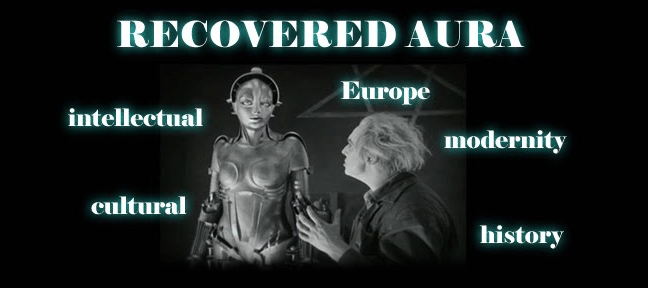Here are questions from me; below, some from the good people of Group 7.
1. What, according to Freud, has been the effect of WWI on European society? What seems to have been the effect on Freud's ideas?
2. If Freud is right here, what is the status of the moral world of nineteenth-century bourgeois Europe? Why was it able to be shaken so easily?
3. In light of your own experience, do you think the Western attitude to death has changed so much since 1915? Have we (as a society) responded to Freud's suggestions in the second essay?
4. "To tolerate life remains," Freud writes, "the first duty of all living beings" (299). Do his conclusion help us tolerate life, or are they intolerable?
5. Identify and discuss one or two broad themes that you think link the texts from Germany's Weimar Republic (1918-1933).
6. One gets the impression from these Weimar-era texts that the war itself destroyed everything. Do any of these texts suggest why the conflict was able to be so disruptive to cultural and intellectual life? Do you have a theory of why that was the case?
7. Mussolini's essay on the Doctrine of Fascism, co-written with neo-Hegelian philosopher Giovanni Gentile, is from 1932, a full decade since Mussolini had come to power. How does Mussolini explain that fact? What does that fact suggest to you?
8. What is the Fascist definition of the ("ethical"?) State, and how does that relate to concepts we've dealt with so far, like (pick one): liberty, equality, democracy, nation, individual, nature, etc.?
9. What is Fascism's position in history, and what philosophy of history is it based on? What seem to be the main intellectual influences here?
.......
1) How does Marinetti's idea of art differ from what Hesse's thoughts on what the art of his time has become?
2) What does Spengler think about Imperialism ?
3) According to Hesse, what is becoming of religion? (could be a separate question) What is the purpose of a culture in his time?
4) What is the difference of thought between the young and the old of the present time?
5) How does Fascism differ from Classical Liberalism and/or Democracy according to Mussolini?
6) Describe Fascism's relationship with Positivism (or materialism) in Mussolini's text?
7) What does Freud say are the consequences of the "tightening of the moral standard" (pg. 284)?
8) What events and ideas led the primeval man to begin assuming other forms of existence and life after death (292-294)?
9) Are there themes in Nietzsche's Genealogy of Morals that emerge in either of the two Freud texts? How are they similar? Different?
Monday, April 5, 2010
Subscribe to:
Post Comments (Atom)

No comments:
Post a Comment